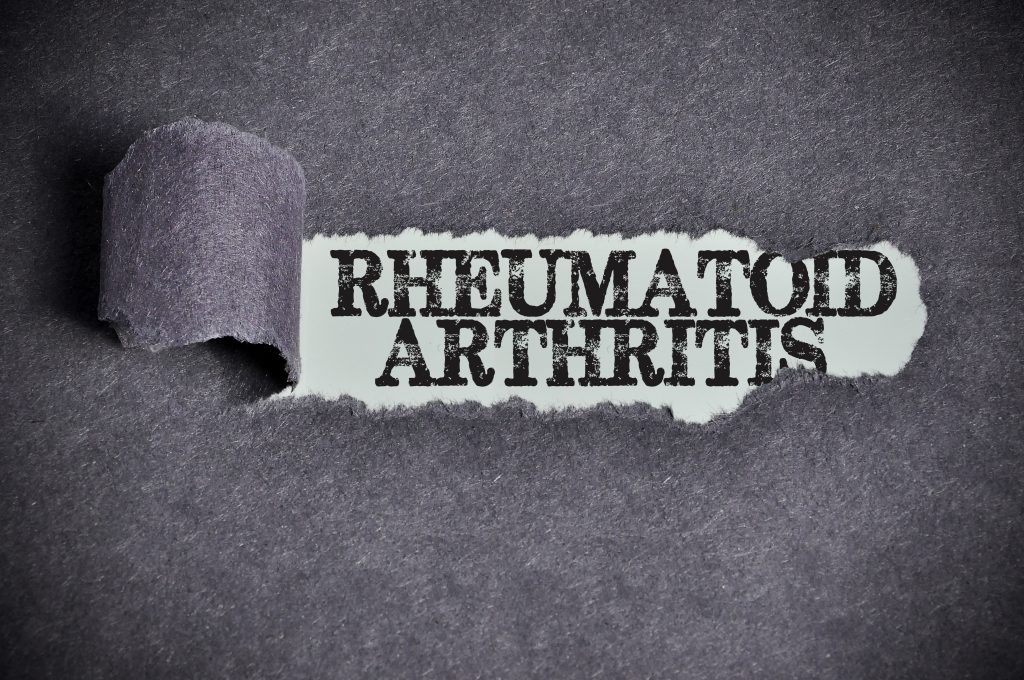What is Rheumatoid Arthritis?
Overview
Rheumatoid arthritis is an autoimmune condition, which means it’s caused by the immune system attacking healthy body tissue.
However, it’s not yet known what triggers this. Your immune system normally makes antibodies that attack bacteria and viruses, helping to fight infection.
If you have rheumatoid arthritis, your immune system mistakenly sends antibodies to the lining of your joints, where they attack the tissue surrounding the joint.

This causes the thin layer of cells (synovium) covering your joints to become sore and inflamed, releasing chemicals that damage nearby:
- Bones
- Cartilage
the stretchy connective tissue between bones
- Tendons
the tissue that connects bone to muscle
- Ligaments
the tissue that connects bone and cartilage
- If rheumatoid arthritis is not treated
these chemicals gradually cause the joint to lose its shape and alignment. Eventually, it can destroy the joint completely.
Rheumatoid arthritis affects more than 1.3 million people in the United States

Diagnosis of Rheumatoid Arthritis
Currently, the most reliable way to diagnose osteoporosis is to measure bone density with a dual-energy absorptiometry scan or DXA. A DXA scan is a short, painless scan that measures the density of your bones, usually at the hip and spine and, in some cases, the forearm.
You can qualify for a Medicare rebate for a DXA scan if you:
- Have previously been diagnosed with osteoporosis
- Have had one or more fractures due to osteoporosis
- Have had one or more fractures due to osteoporosis
- Have a chronic condition, including rheumatoid arthritis, coeliac disease or liver disease
- Have used corticosteroids for a long time.
Your doctor will be able to tell you whether you fit the criteria to receive a Medicare rebate. It is possible to have a DXA scan performed if you do not fit the criteria for the Medicare rebate, however, there will usually be an out-of-pocket cost associated with the scan.
RA usually starts to develop between the ages of 30 and 60
Dealing with the “what ifs” of cancer
Acknowledging the unknowns of cancer may make you feel anxious, angry, sad, or afraid. You may even have physical symptoms from these feelings. For instance, it may cause sleeping problems or make it harder to focus on work. Learning to manage the uncertainty is an important part of staying healthy.

These tips may help you manage RA:
- Become More Physically Active
As a result of participating in this workshop, people with arthritis (including RA) become more confident about controlling their symptoms, living well with arthritis, and understanding how arthritis affects their lives.
- Enroll in a class on self-management
Talk with your health care team if your feelings of uncertainty are affecting your daily life. They can help you find the resources you need to feel better.
- Stop Smoking
Smoking exacerbates the disease and can lead to other health problems as well. Smoking can also make it harder to stay physically active, which is crucial to managing RA.
- Maintain a Healthy Weight
It is important to maintain a healthy weight for people with RA due to the many problems associated with obesity.
Controlling joint inflammation reduces your pain and improves your quality of life

Rheumatoid Arthritis Treatment
In most cases, joint damage occurs within two years of diagnosis, so you should see your provider as soon as possible if you notice symptoms. Treating rheumatoid arthritis early on can help prevent long-term consequences.
RA is typically treated with medications that slow disease progression and prevent joint damage, called disease-modifying antirheumatic drugs (DMARDs).
The DMARDs that may be used include:
- Methotrexate
- Leflunomide
- Hydroxychloroquine
- Sulfasalazine
Methotrexate is usually the first medicine given for rheumatoid arthritis, often with another DMARD and a short course of steroids (corticosteroids) to relieve any pain.
Common side effects of methotrexate include:
- Feeling sick
- Loss of appetite
- A sore Mouth
- Diarrhea
- Headaches
- Hair loss
Along with medications, people with RA can manage their disease with self-management strategies proven to reduce pain and disability, allowing them to pursue their favorite activities.
Doctors who specialize in arthritis are called rheumatologists, and they can make the correct diagnosis
